Information for integrated Decision-Making and Participation
Description
The 2030 Agenda for Sustainable Development focuses on decision-making with particular reference to participation of vulnerable groups, such as women (SDG target 5.5), developing countries, including African countries, least developed countries, land-locked developing countries, small-island developing States and middle-income countries (SDG target 10.6) to the decision-making process. Furthermore, SDG target 16.7 aims to “Ensure responsive, inclusive, participatory and representative decision-making at all levels”. The 2030 Agenda also highlights, in its paragraph 48, the importance indicators have for decision-making.
In the Rio+20 Conference outcome document, the Future We Want, paragraph 14 recognizes that “opportunities for people to influence their lives and future, participate in decision-making and voice their concerns are fundamental for sustainable development” and reaffirms respectively in paragraph 19, “ the continued need for the full and effective participation of all countries, in particular developing countries, in global decision-making” and in Paragraph 31 the “commitments to ensure women's equal rights, access and opportunities for participation and leadership in the economy, society and political decision-making”.
An important role is also recognized to major groups and other stakeholders. In the outcome document of the Future We Want, member states “agree to work more closely with major groups and other stakeholders and encourage their active participation, as appropriate, in processes that contribute to decision-making, planning and implementation of policies and programmes for sustainable development at all levels”, as per paragraph 43.
Paragraph 276 of the Future We Want acknowledges “the need to facilitate informed policy decision-making on sustainable development issues and, in this regard, to strengthen the science-policy interface”, whereas paragraph 279 reiterates “participation and representation of men and women scientists and researchers from developing and developed countries in processes related to global environmental and sustainable development assessment and monitoring, with the purpose of enhancing national capabilities and the quality of research for policy- and decision-making processes”.
Both the World Summit on Sustainable Development (WSSD) in 2002 and the Commission on Sustainable Development emphasized the importance of information for sound decision-making.
The Johannesburg Plan of Implementation (JPOI) focuses in paragraph 7d, on women’s access and full participation to decision-making. Paragraph 19 takes into consideration the importance of integrating sustainable development into decision-making processes at all levels. Whereas, paragraph 86 describes the importance of consolidating the reform process of existing financial systems in order to “provide for the effective participation of developing countries in the international economic decision-making processes”. Furthermore, the need to “improve policy and decision -making at all levels” and in particular through an “improved collaboration” between science and policy-makers is stressed in paragraph 109 e.
Chapter 8 of Agenda calls on countries to improve or restructure the decision-making process so that consideration of socio-economic and environmental issues is fully integrated and a broader range of public participation assured. It also calls on countries to adopt national strategies for sustainable development (NSDS) that "should build upon and harmonize the various sectoral economic, social and environmental policies and plans that are operating in the country".
Furthermore, chapter 40 of Agenda 21 focuses on information for decision-making and emphasizes that, in sustainable development, everyone is a user and provider of information considered in the broad sense. That includes data, information, experience and knowledge. The need for information arises at all levels, from that of senior decision-maker at the national and international levels to the grass-roots and individual levels.
Milestones
-
January 2015 Targets 5.5, 10.6 and 16.7The 2030 Agenda for Sustainable Development focuses on decision-making with particular reference to participation, to the decision-making process, of vulnerable groups, such as women (SDG target 5.5), developing countries, including African countries, least developed countries, land-locked developing countries, small-island developing States and middle-income countries (SDG target 10.6) . Furthermore, SDG target 16.7 aims to “Ensure responsive, inclusive, participatory and representative decision-making at all levels”. The 2030 Agenda also highlights, in its paragraph 48, the importance indicators have for decision-making.
-
January 2012 Future We Want (Paragraphs 13, 19, 43, 276 and 279)Paragraph 13 recognizes that “opportunities for people to influence their lives and future, participate in decision-making and voice their concerns are fundamental for sustainable development”. The Future We Want reaffirms, respectively in paragraph 19,“the continued need for the full and effective participation of all countries, in particular developing countries, in global decision-making” and in paragraph 31 the “commitments to ensure women's equal rights, access and opportunities for participation and leadership in the economy, society and political decision-making”. An important role is also recognized to major groups and other stakeholders. Member States “agree to work more closely with major groups and other stakeholders and encourage their active participation, as appropriate, in processes that contribute to decision-making, planning and implementation of policies and programmes for sustainable development at all levels”, as per paragraph 43. Paragraph 276 of the Future We Want acknowledges “the need to facilitate informed policy decision-making on sustainable development issues and, in this regard, to strengthen the science-policy interface”, whereas paragraph 279 reiterates “participation and representation of men and women scientists and researchers from developing and developed countries in processes related to global environmental and sustainable development assessment and monitoring, with the purpose of enhancing national capabilities and the quality of research for policy- and decision-making processes”.
-
January 2002 JPOI (Paragraphs 7d, 19, 86, 109e)The Johannesburg Plan of Implementation (JPOI) focuses in paragraph 7d, on women’s access and full participation to decision-making. Paragraph 19 takes into consideration the importance of integrating sustainable development into decision-making processes at all levels. Whereas, paragraph 86 describes the importance of consolidating the reform process of existing financial systems in order to “provide for the effective participation of developing countries in the international economic decision-making processes”. Furthermore, the need to “improve policy and decision -making at all levels” and in particular through an “improved collaboration” between science and policy-makers is stressed in paragraph 109 e.
-
January 1992 Agenda 21 (Chap. 8 and 40)Chapter 8 of Agenda calls on countries to improve or restructure the decision-making process so that consideration of socio-economic and environmental issues is fully integrated and a broader range of public participation assured. It also calls on countries to adopt national strategies for sustainable development (NSDS) that "should build upon and harmonize the various sectoral economic, social and environmental policies and plans that are operating in the country". Furthermore, chapter 40 of Agenda 21 focuses on information for decision-making and emphasizes that, in sustainable development, everyone is a user and provider of information considered in the broad sense. That includes data, information, experience and knowledge. The need for information arises at all levels, from that of senior decision-maker at the national and international levels to the grass-roots and individual levels.


